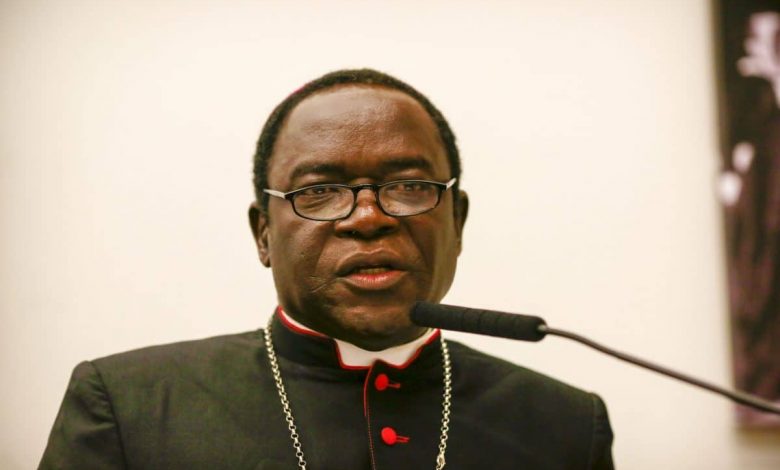
The Catholic Bishop of Sokoto Diocese, Matthew Kukah has said that all hands must be on deck to ensure an end to the violent extremism ravaging the Northeast region of the country.
Kukah while reviewing a new book authored by Lucky Irabor, the former Chief of Defence Staff said military operations alone cannot end Boko Haram or the activities of the terrorists in the region.
The book titled, ‘Scars: Nigeria’s Journey and the Boko Haram Conundrum’, highlights some of the feats recorded by the Nigerian government in its efforts to combat violent extremism.
It also highlights the impact of Boko Haram terrorists on the Nigerian people and the nation’s entire development while reeling out possible means to reconciliation processes, good governance, justice, and national healing as critical conditions for security.
Speaking at the event which took place on Thursday, Kukah described Boko Haram as an ideology that has continued to ravage the nation due to its reliance on military operations.
According to the cleric, the repeated counter-terrorism operations by the military have failed to provide lasting peace in the Northeast region and its environs.
His words, “For years, we have had Operation Lafiya Dole, Operation Restore Order, Operation Hadin Kai, Operation Safe Haven, and many others.
“Yet, when one operation fails, another is launched. These operations have not ended the insurgency because you cannot fight an idea with weapons alone,” Kukah noted.
He further warned that tackling insurgency via military terms would continue to limit other possible sources of information and non-kinetic solutions that are key to peacebuilding.
“The challenge before us is not merely about defeating insurgents on the battlefield, but about understanding the soft issues of life and death. Guns cannot build peace; soft power must complement military power,” Kukah said.
Further citing chapters 11, 12 and 13 of the book, Kukah commended General Irabor for his craftsmanship and reflections as showcased in his book.
He said the author’s work is commendable as he successfully broadened his research beyond military strategy as a means to address the grievances and political frictions that feed extremism.
